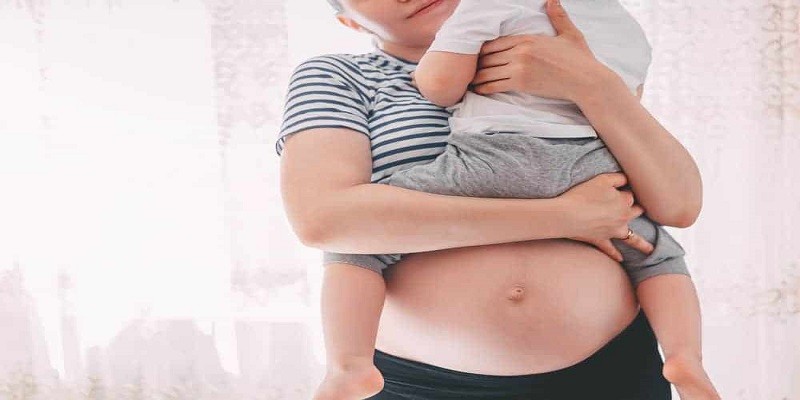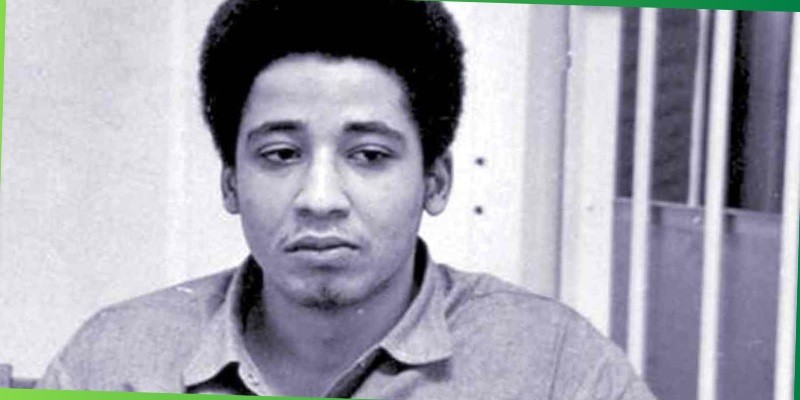Last Updated on April 4, 2024
Yes, babies can sense pregnancy through changes in their mother’s scent and hormones. During pregnancy, a woman’s body releases various hormones that can be detected by a baby.
In addition, babies may also react to changes in their mother’s behavior and physical characteristics, such as a growing belly. Pregnancy is a remarkable and exciting time for expectant parents. It is a period of great joy and anticipation, but it can also be a period of doubt and questions.
One of the most common questions people ask is whether babies can sense pregnancy. Many people believe that babies can pick up on their mother’s growing belly or hormonal changes. In this article, we will explore in detail the question of whether babies can sense pregnancy and what the evidence suggests.

How Babies May Sense Pregnancy
Explanation Of How Babies May Sense Pregnancy:
Babies have a remarkable ability to sense and respond to various stimuli, including changes in their surroundings and the actions of people around them. As expecting parents wonder about the possibility of their babies sensing their pregnancy, experts suggest that babies may detect it in the following ways:
- Through hormonal and chemical changes in the mother’s body, particularly in the pheromones she produces
- By noticing changes in the mother’s behavior and emotional state, such as increased stress or excitement
- By detecting changes in the mother’s physical appearance and movements, such as a growing belly or more frequent trips to the bathroom
Discussion Of Scientific Studies That Suggest Babies Can Sense Pregnancy Through Various Means:
Several scientific studies have suggested that babies are indeed capable of sensing pregnancy through different means. For example:
- According to research published in the journal infant behavior and development, newborns were responsive to the scent of breast milk produced by their own mother during pregnancy, which suggests that babies can recognize the odor of their mother’s milk as early as in the womb.
- Another study published in the journal frontiers in psychology found that seven-month-old infants responded differently to videos of pregnant versus non-pregnant women, indicating that they could distinguish between the two.
- A third study, published in developmental psychology, found that children were more likely to imitate a pregnant woman’s actions compared to an non-pregnant woman’s actions, suggesting that they are able to perceive subtle cues that indicate pregnancy.
Examples Of How Pregnant Women And Their Babies May Share A Connection:
As babies are perceptive and sensitive to their environment, pregnant women and their babies may share a connection that goes beyond what science can explain. Here are a few examples:
- Pregnant women often report experiencing a stronger bond with their babies, even before they are born. This bond can be enhanced by talking, singing, or even playing music to the baby in the womb.
- Some pregnant women report experiencing a heightened sense of intuition or connection with their babies, often describing a feeling of knowing what their baby wants or needs.
- Babies may respond to their mother’s voice by calming down or becoming more active, which suggests that they are able to recognize their mother’s voice and respond to it even before they are born.
While there is no concrete evidence of babies being able to sense pregnancy, research suggests that they may indeed be able to perceive changes in their mother’s body, behavior, and environment. The connection between a pregnant woman and her baby is a unique and magical one that cannot be fully explained by science.
Physical Changes In Pregnant Women That Affect Babies
Discussion Of Physical Changes In Pregnant Women That May Affect Babies
As a pregnant woman’s body changes, so does her baby’s environment. The physical changes in pregnant women can affect babies and their development in a variety of ways. Here are some key points to consider:
- Hormonal changes: During pregnancy, a woman’s body experiences a surge in hormones that can influence the baby’s growth and development. The hormones estrogen and progesterone, for example, play a crucial role in the formation of the placenta that delivers nutrients and oxygen to the fetus.
- Increased blood volume: Pregnant women produce more blood to support the developing fetus. This increase in blood volume can affect the baby by increasing the flow of oxygen and other vital nutrients to the placenta.
- Changing shape of the uterus: As the uterus expands to accommodate the growing fetus, it changes shape and puts pressure on nearby organs, such as the bladder. This pressure can affect fetal movement and positioning.
Emphasis On How These Changes Can Be Sensed By Babies
Babies are known to be highly sensitive to their environment, and they are capable of detecting the physical changes that occur in a pregnant woman’s body. Here are a few ways that babies may sense these changes:
- Movement: As the fetus grows, it moves more frequently in response to changes in the mother’s body. For example, babies may respond to their mother’s increased heart rate or changes in blood sugar levels.
- Sound and vibration: The baby can hear sounds from the outside world, including the mother’s voice and heartbeat. The mother’s movements can also create vibrations that the baby is sensitive to.
- Chemical signals: A pregnant woman’s body produces a range of chemicals that babies may be able to detect, including pheromones, hormones, and other substances.
Explanation Of How These Changes Can Impact Fetal Development
The physical changes in pregnant women can have a significant impact on fetal development and the health of the baby. Here are a few examples:
- Oxygen supply: The increase in blood volume and changes in circulation can affect the baby’s oxygen supply. If the placenta is not receiving enough blood flow or oxygen, it can lead to complications, including fetal distress and premature birth.
- Neural development: Hormonal changes in the mother’s body can have an impact on the baby’s neural development, including the formation of the brain and nervous system.
- Birth weight: Maternal health and lifestyle factors can impact the baby’s birth weight. Factors such as smoking, poor nutrition, and stress can lead to low birth weight and other complications.
The physical changes that occur in pregnant women have a far-reaching impact on their babies. From hormonal changes to oxygen supply, these changes can affect fetal development and the health of the baby. Understanding how babies sense and respond to these changes may help us better support the health and wellbeing of both mother and child.
Emotional Changes In Pregnant Women That Affect Babies
Discussion Of Emotional Changes In Pregnant Women That May Affect Babies
Pregnancy can be an exciting and rewarding experience for women, but it can also be challenging, both physically and emotionally. Emotional changes during pregnancy are common due to hormonal fluctuations, fear of the unknown, and concerns about the health and wellbeing of the baby.
These changes can affect the baby in various ways, such as through the release of stress hormones, changes in the fetus’s brain development, and the baby’s ability to regulate their emotions.
Explanation Of How Emotional Stress Can Impact Fetal Development
Stress during pregnancy is not uncommon and can be caused by various factors, such as financial worries, anxiety about pregnancy or childbirth, relationship issues, and more. Research has shown that emotional stress during pregnancy can impact a fetus’s development in different ways.
It can lead to premature birth, low birth weight, and higher risk of developmental delays and emotional problems later in life. Moreover, stress during pregnancy can also affect the baby’s brain development, leading to long-term cognitive and emotional deficits.
Examples Of How Pregnant Women’S Emotions Can Impact Their Babies
Pregnant women’s emotions can significantly influence their unborn babies in various ways. Here are some examples:
- Uncontrolled stress or depression during pregnancy can lead to behavioral and emotional problems in children, including anxiety, hyperactivity, and aggression.
- Women who experience high levels of stress during pregnancy have a more significant likelihood of having babies with lower birth weight and smaller head circumference, leading to potential health issues later in life.
- Anxiety and depression during and after pregnancy in mothers can lead to delayed cognitive development and lower iq scores in their children.
- Prenatal maternal stress can also increase the risk of fetal programming, which can lead to a higher risk of chronic diseases such as diabetes, obesity, and hypertension in later life.
Emotional changes during pregnancy can have long-lasting effects on the fetus and their future development. The key takeaway is that pregnant women must manage their stress levels and seek appropriate medical attention if they experience prolonged emotional stress or symptoms of depression or anxiety.
By doing so, they can help to ensure the healthy development of their unborn baby.
Common Myths About Babies And Pregnancy
Discussion Of Common Misconceptions Surrounding Babies And Pregnancy
There are many myths surrounding babies and pregnancy, but not all of them are true. Below are some of the most common myths about babies and pregnancy, and the truth behind them:
- Myth: Babies can sense pregnancy.
- Explanation: There is no scientific evidence to support this claim. While some babies may react differently to pregnant individuals, it is likely due to changes in behavior and hormones rather than an ability to sense pregnancy.
- Myth: Exercising during pregnancy is dangerous.
- Explanation: Exercise can be beneficial during pregnancy, as long as it is done with caution and under the guidance of a healthcare provider. In fact, regular exercise can help improve mood and energy levels, and even make labor and delivery easier.
- Myth: Eating for two is necessary during pregnancy.
- Explanation: While it is important to eat a balanced and nutritious diet during pregnancy, you do not need to consume double the amount of food. Overeating can lead to excessive weight gain and other health complications.
Explanation And Debunking Of These Myths
It is crucial to understand the truth about babies and pregnancy, as believing in false information can lead to unnecessary stress and anxiety. Here are some further explanations and debunking of the common myths about babies and pregnancy:
- Myth: Babies can sense pregnancy.
- Explanation: While it is true that some babies may become more clingy or fussy around pregnant individuals, there is no evidence to suggest that they can actually sense pregnancy. This behavior is more likely due to changes in the person’s behavior or scent, or due to the baby’s age and development.
- Myth: Exercising during pregnancy is dangerous.
- Explanation: Regular exercise during pregnancy can have many benefits, including improved cardiovascular health, better mood, and reduced risk of gestational diabetes and preeclampsia. However, it is important to consult with a healthcare provider before starting or continuing any exercise regimen, and to avoid activities that may put stress on the abdomen or pose a risk of falls or injury.
- Myth: Eating for two is necessary during pregnancy.
- Explanation: While it is true that pregnant individuals need to consume additional calories to support fetal growth and development, it is not necessary to eat double the amount of food. Health experts suggest consuming an additional 300-500 calories per day, and focusing on a balanced diet rich in protein, fruits and vegetables, and whole grains.
Emphasis On The Importance Of Understanding The Truth About Babies And Pregnancy
Understanding the truth about babies and pregnancy is important for the physical and mental health of the pregnant individual, as well as for the well-being of the baby. Believing in false information can lead to unnecessary stress and anxiety, or even put the pregnancy at risk.
Always consult with a healthcare provider for accurate information and advice, and do not hesitate to ask questions or voice concerns.
Frequently Asked Questions For Can Babies Sense Pregnancy?
Can Babies Sense Pregnancy Early On In A Woman?
There’s some evidence to suggest that babies can pick up on cues from their mother’s body.
How Do Babies React To Pregnancy?
Some babies will become more clingy, while others may seem to be more independent.
Is It Normal For A Baby To Act Different During Pregnancy?
Yes, it’s completely normal for a baby’s behavior to change during pregnancy.
Do Babies React Differently To Mother’S Pregnant Friends?
Babies may react differently to different pregnant women, depending on their relationships.
Can A Baby’S Behavior During Pregnancy Be An Indicator Of Gender?
No, there is no scientific evidence to suggest that a baby’s behavior can predict their gender.
Conclusion
From the research we have explored, it is evident that babies can sense pregnancy. Numerous anecdotal experiences and scientific studies suggest that newborn babies are capable of picking up signals from their mother’s body during pregnancy. They can sense the changes in hormone levels, mood swings, and physical movements.
While it may be thrilling to learn about this bond between mother and child, it is important to note that every baby is different and might react to signals in a different way. Hence, it is imperative to establish healthy practices during the pregnancy period.
Maintaining a stress-free environment, avoiding certain foods, practicing gentle exercise, and following proper prenatal care can ensure a smooth and healthy pregnancy journey for both mother and baby. Remember that your baby’s well-being should be the top priority, and understanding their ability to sense the pregnancy is the first step towards building a strong and loving bond.







